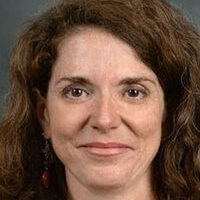It was a different time back in the ’70s. Women’s liberation and gay rights were on the march. Vietnam War protests coupled with the civil rights freedom movements changed the political atmosphere of the United States.
But the water and air were polluted.
Biologist Rachel Carson published her classic expose “Silent Spring” on the environmental disaster caused by pesticides like DDT in 1962. The book had enormous implications and influence.
On the afternoon of Jan. 29, 1969, an environmental nightmare began in Santa Barbara, Calif. A Union Oil Co. platform suffered a natural gas blowout. The explosion created breaks in an ocean floor fault, releasing 200,000 gallons of crude oil. Over the next 11 days, the oil spread into an 800-square-mile slick coating beaches along a 35-mile coastline with thick tar. The disaster horrified Americans.
Six months later, on June 22, 1969, Ohio’s Cuyahoga River, full of waste from Cleveland’s mighty steel plants, caught fire. This disaster increased Americans’ anxiety and anger about environmental crises.
On April 22, 1970, 20 million Americans — largely self-organized — took to the streets to protest environmental degradation. That was 10 percent of the population of the country!
It was that mass popular pressure that forced President Richard Nixon to set up the Environmental Protection Agency.
A hidden history indeed, until PBS’ “Frontline” aired its two-hour documentary on the subject April 21.
Congress passed the Clean Water Act over Nixon’s veto, and it was clear from the interviews in the documentary that Nixon OK’d the EPA for political, not environmental, reasons. Somewhat symbolically, the first head of the EPA, William Ruckelshaus, said Nixon would never refer to the agency by its lettered name, instead calling it “ep-ah.”
In an explosive examination of two of the nation’s largest waterways — Chesapeake Bay and Puget Sound, the Frontline show spotlighted deregulation, corporate-run agriculture and unchecked growth as critical components to what is bringing these water treasures to the brink of disaster.
Veteran journalist Hedrick Smith took viewers along as he explored the threats to those two iconic water bodies and how their problems are shared across the country.
Smith interviewed fisherman who lament the loss of Chesapeake Bay’s seafood abundance and tracks the bay’s ‘dead zone’ back to its biggest source — the proliferation of humongous chicken farms across Maryland’s eastern peninsula. These farms raise millions of chickens a year for Purdue (and Tyson) and the chicken waste goes untreated and unregulated into streams that lead right into the bay. Purdue and other agribusinesses had a legion of lobbyists to prevent any regulatory system to force producers to clean up the mess. Instead a “voluntary” system was put in place.
Huge factory farms, where millions of animals are raised in places where perhaps a decade ago only one-tenth the number were raised, are a major contributor to the present-day pollution of the nation’s waterways, according to the Frontline program.
The Reagan “revolution” knocked the teeth out of regulatory systems set up during the 1970s. Ronald Reagan, elected president in 1980, crusaded against government and appointed an anti-regulatory crew to the EPA, Frontline showed. The new Obama administration has already taken steps to put some of the teeth back into the EPA, the program suggested.
Agri-business runoff, while accounting for the majority of the pollution, isn’t the only problem. Frontline also examined the totally unregulated household cleaning supplies, medicines and other consumer product chemicals that get into the drinking water. Some of these chemicals are endocrine disrupters, which scientists think are responsible for large fish kills and mutations.
These are chemicals that water treatment plants are not equipped to test for, let alone monitor. Science, according to Frontline, has to play catch up to the chemical industry.
While millions of Americans are aware of and angry about the growing environmental crises, from climate change to toxic waste, the power of an engaged, mass movement for corporate accountability, regulation and curbs on growth is still necessary. It’s a conclusion easily drawn after watching Frontline.












Comments